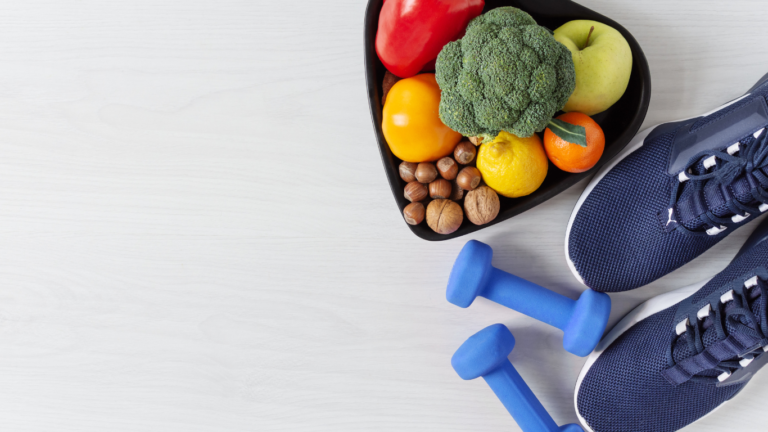
Portrait of Asian Chinese family charging her electric car.
Fueling Your Fitness: Nutrition Tips for Peak Performance
Nutrition is the bedrock of physical fitness and peak performance. Whether you’re an elite athlete, a weekend warrior, or someone just starting their fitness journey, what you eat can significantly impact your results. This comprehensive guide provides valuable insights and nutrition tips to help you fuel your fitness and achieve peak performance.
Understanding the Role of Nutrition in Fitness
Before delving into the tips for optimizing your nutrition, it’s important to understand the vital role it plays in fitness and performance:
1. Energy Source:
Nutrition provides the energy required for exercise. Carbohydrates, fats, and proteins are macronutrients that the body converts into energy. The right balance is crucial for sustained performance.
2. Muscle Building and Repair
Protein is essential for muscle growth and repair. Regular exercise breaks down muscle tissue, and protein helps rebuild and strengthen it.
3. Recovery:
Nutrition is vital for post-workout recovery. Consuming the right nutrients after exercise helps reduce muscle soreness and replenish glycogen stores, allowing for quicker recuperation.
4. Hydration:
Staying hydrated is key for maintaining energy levels, temperature regulation, and overall performance. Dehydration can lead to fatigue and impaired physical abilities.
5. Body Composition:
What you eat directly impacts your body composition. A well-balanced diet can help reduce body fat and increase lean muscle mass.
Now, let’s explore some nutrition tips to optimize your fitness and achieve peak performance:
1. Balancing Macronutrients
Achieving a balanced intake of macronutrients is essential for overall health and fitness. The ratio of macronutrients you need may vary depending on your goals, but a general guideline is as follows:
Carbohydrates:
These are your body’s primary source of energy. Complex carbohydrates like whole grains, fruits, and vegetables should make up a significant portion of your diet. Simple sugars should be consumed in moderation.
Proteins:
Proteins are vital for muscle growth and repair. Include lean sources such as chicken, turkey, fish, tofu, legumes, and dairy products. The exact amount of protein you need depends on your activity level and goals, but a common recommendation is around 1.2 to 2.2 grams of protein per kilogram of body weight.
Fats:
Healthy fats are crucial for overall health. Avocados, nuts, seeds, and olive oil are excellent sources of healthy fats. They provide a steady source of energy and support various bodily functions.
2. Timing of Nutrient Intake
The timing of your nutrient intake can influence your performance and recovery:
Pre-Workout
Consume a balanced meal with carbohydrates, protein, and a small amount of healthy fats about 2-3 hours before your workout. This will provide you with sustained energy and prevent hunger during exercise.
Post-Workout:
After exercise, focus on replenishing your glycogen stores and aiding muscle recovery. A combination of carbohydrates and protein within 30 minutes of your workout is ideal. A simple example is a banana and a protein shake.
Throughout the Day:
Maintain a consistent eating schedule. Eating every 3-4 hours can help regulate blood sugar levels and keep your energy levels steady.
3. Hydration
Proper hydration is critical for peak performance. Water is involved in nearly every metabolic process in the body and is essential for maintaining body temperature. Dehydration can lead to fatigue and decreased performance. Some key tips for staying hydrated:
Pre-Hydration:
Drink water before your workout to ensure you start in a well-hydrated state.
During Exercise:
Stay hydrated during your workout, especially for prolonged sessions. Sports drinks with electrolytes can be useful for activities lasting more than an hour, as they help replenish lost electrolytes.
Post-Workout:
Rehydrate after exercise by drinking water or an electrolyte-rich beverage to replace fluids lost through sweat.
4. Nutrient Density
Choose nutrient-dense foods to get the most value out of your calories. Nutrient-dense foods provide essential vitamins, minerals, and other beneficial compounds. Focus on whole, unprocessed foods such as fruits, vegetables, lean proteins, and whole grains. These foods not only support your overall health but also aid in muscle recovery and energy production.
5. Supplements
While a well-balanced diet should provide most of the nutrients you need, there are situations where supplements may be beneficial. These might include vitamin D, omega-3 fatty acids, or protein supplements. However, it’s essential to consult a healthcare professional or registered dietitian before starting any supplement regimen.
6. Portion Control
Be mindful of portion sizes to prevent overeating. A simple way to control portion sizes is by using your hand as a guide. For example, a portion of protein should be about the size of your palm, while a serving of carbohydrates like rice or pasta should be the size of your clenched fist. Additionally, fill half of your plate with vegetables or salad to increase fiber intake and provide vital nutrients.
7. Personalization and Tracking
Remember that nutrition is not one-size-fits-all. The right approach depends on your individual needs, goals, and preferences. Keep a food diary to track your meals, exercise, and how your body responds. This can help you identify what works best for you and where adjustments may be needed.
8. Consistency and Patience
Achieving peak performance through nutrition is a long-term commitment. It requires consistency and patience. Don’t be discouraged by short-term setbacks or plateaus. Progress may not always be linear, but maintaining a healthy and balanced diet over time will yield positive results.
9. Seek Professional Guidance
For those with specific fitness goals, dietary restrictions, or medical conditions, consulting a registered dietitian can be invaluable. They can provide personalized guidance, and meal planning, and address any nutritional concerns specific to your situation.
10. Mindset and Enjoyment
Lastly, maintain a positive mindset about your nutrition. View it as a tool that helps you achieve your fitness and performance goals, rather than a set of restrictions. Strive for a balance that allows you to enjoy your meals and maintain a healthy relationship with food.
In conclusion, fueling your fitness for peak performance is a multifaceted process. Achieving your fitness goals involves not only a well-balanced diet but also the timing of nutrient intake, hydration, portion control, personalization, and consistency. Remember that nutrition is a key component in the journey to peak performance, and it’s essential for supporting your body as you pursue your fitness aspirations. Embrace these nutrition tips to enhance your performance and ultimately achieve your fitness goals.




